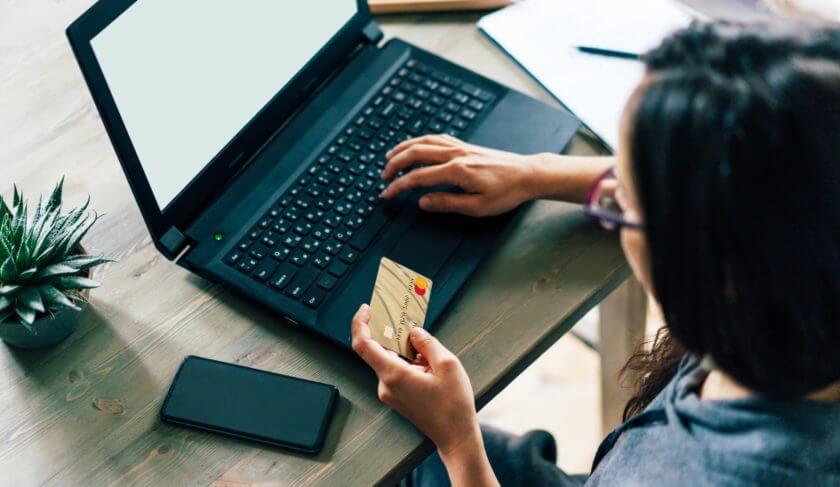
While most of us never set out to miss a credit card payment on purpose, sometimes life happens. And when life includes an 18-month plunge into a pandemic that leads to large-scale shutdowns, lost jobs and lower wages for millions, skipping a credit card payment in favor of paying the utility bill can certainly make sense in the moment.
A new WalletHub survey found that 47 million Americans — that’s almost 1 in 5 adults — think they will miss at least one credit card due date this year. The most common reasons given? Forgetfulness or not having enough money, says Jill Gonzalez, a WalletHub analyst.
While missing a credit card payment or making a late payment may not seem like a big deal, it can have a negative impact on your credit score if you are more than 30 days past the bill’s due date. And a lower credit score could mean you have to pay more for other important things down the road (like a house or a car) because you may not qualify for the lowest interest rates when it’s time to borrow money.
If you find yourself in a place where you may be late on a credit card payment, the important thing to know is that you have options. (Just remember that doing nothing shouldn’t be one of them!) Here are the steps you should take before (and even after) you’re late with a credit card payment.
Call the credit card company to ask for more time
This falls under the category of: “The answer is always ‘no’ if you don’t ask.” And if you ask nicely, and you have a history of making payments on time, Gonzalez says, you may be able to get an extension on making your payment or have the late fee waived if you’re already late. WalletHub’s research found that out of 1,000 people surveyed, nearly nine in 10 who tried to get a credit card late fee waived were successful. Woot!
Look into a balance transfer
If high-interest rates are contributing to your mounting debt, investigate whether a balance transfer to another card with a lower interest rate, preferably at 0%, could be an option for you. A word of advice: It pays to shop around. Check out fiona where you can see a variety of credit card offers, and even personal loan options that may be a way for you to pay off your credit card debt at a lower interest rate than you’re paying now.
Automate monthly billing
The Wallethub survey found that high-income earners are twice as likely to miss a credit card payment than low-income earners because of forgetfulness. Read that again. If you’re often worried that you might simply forget when your credit card bills are due and not pay them, the fix is super easy. Set up an automatic transfer from your checking account for the minimum payment on your cards, or any other bills you owe.
You can also set a monthly reminder on a Google or Gmail calendar or through other email services to alert yourself the day before you need to make a payment. The bonus is that when you don’t miss payments, you won’t be charged late fees. Plus, automatic payments made on time month after month will help improve your credit score.
Ask about hardship plans or restructuring payments
With millions still out of work or under-employed, we likely haven’t seen the end of the negative financial impacts caused by the COVID-19 pandemic. If the minimum payments on your credit cards are too much right now, consider calling your card issuer to see about restructuring your payments to a lower amount each month, says Dan Herron, a certified financial planner with Elemental Wealth Advisors.
Seek advice from a nonprofit credit counseling agency
Before you miss a second credit card payment or more, look to a nonprofit credit counselor who can likely assist you with establishing a monthly budget, finding ways to lower monthly expenses and perhaps offering suggestions for things you might not have considered. The National Foundation for Credit Counseling at NFCC.org is a great resource for finding a counselor in your area. While you can meet with a counselor by phone or online, it’s better to meet in person if at all possible.
Build an emergency fund as soon as you’re able
Having an emergency fund is essential, says Therese R. Nicklas, founder of The Wealth Coach for Women. “It’s going to give you peace of mind,” she says, “and you can’t put a price on that. Plus, knowing you have a cushion gives you so many more opportunities and options.” The idea is you should have three to six months worth of basic living expenses in a separate savings or checking account so you can get to the money quickly if you need to. So, if your car breaks down or you are going to be late with a credit card payment, you’ll have that bucket of money to draw from.
Pay bills as soon as they come in if you’re at all able to do so.
If you can swing it, pay your bills the day they come in the mail or whenever they appear in your email inbox. HerMoney founder Jean Chatzky swears by this method, and research shows that people who do this — pay their bills as they come in every month — are ultimately happier in life. Because let’s face it, you know exactly what’s going to happen to that bill if it ends up in the basket-of-no-return on your kitchen counter — it’s going to be paid late.
MORE ON HERMONEY:
- The Six Best Credit Cards for 2021
- HerMoney Podcast Bonus Mailbag #18: Credit, Credit Cards, And Debt
- 5 Things To Do After You’ve Paid Off Your Credit Cards
SUBSCRIBE TO HERMONEY: For more amazing (and free!) tips on managing your money every week, subscribe to HerMoney today!







